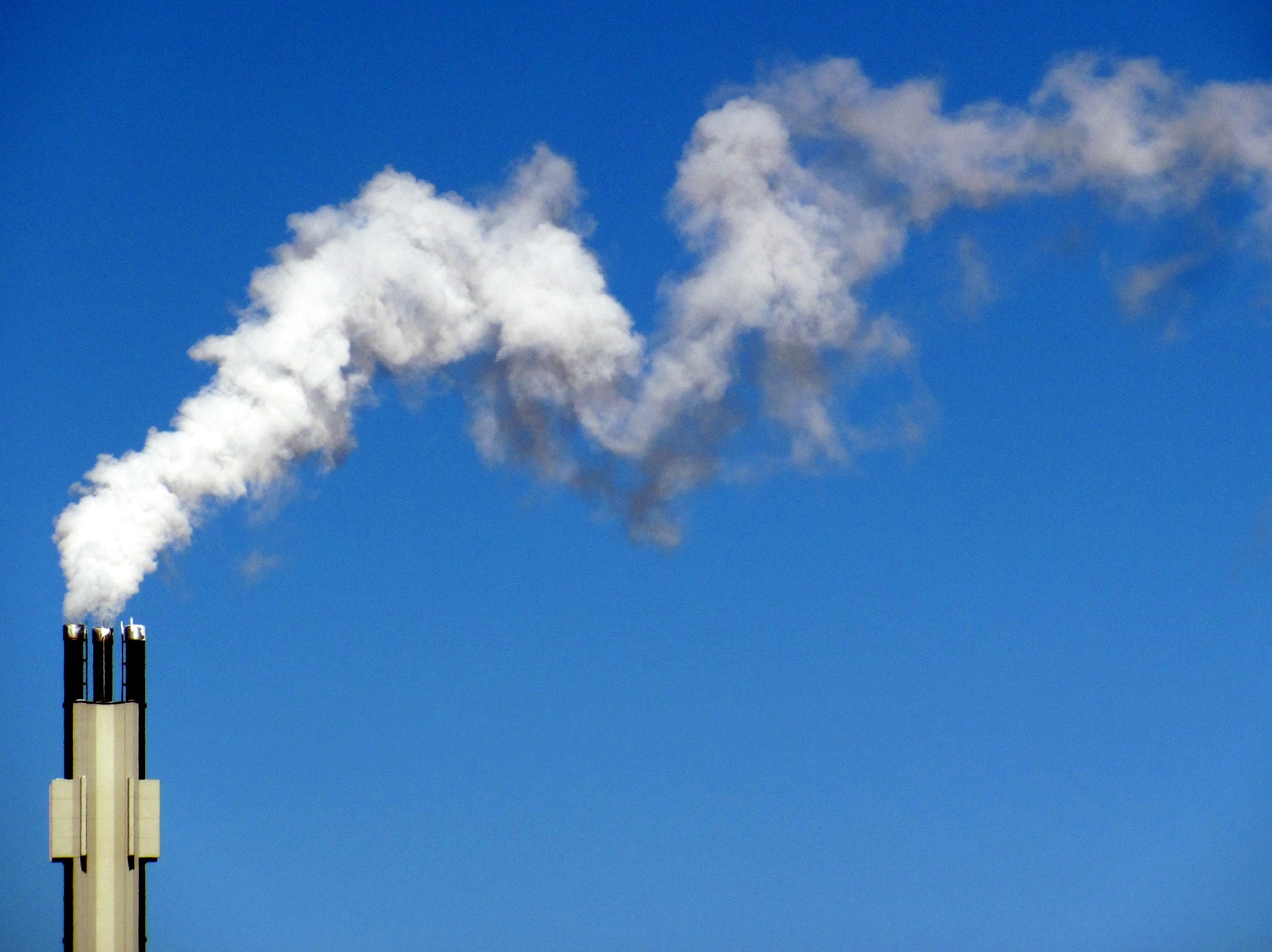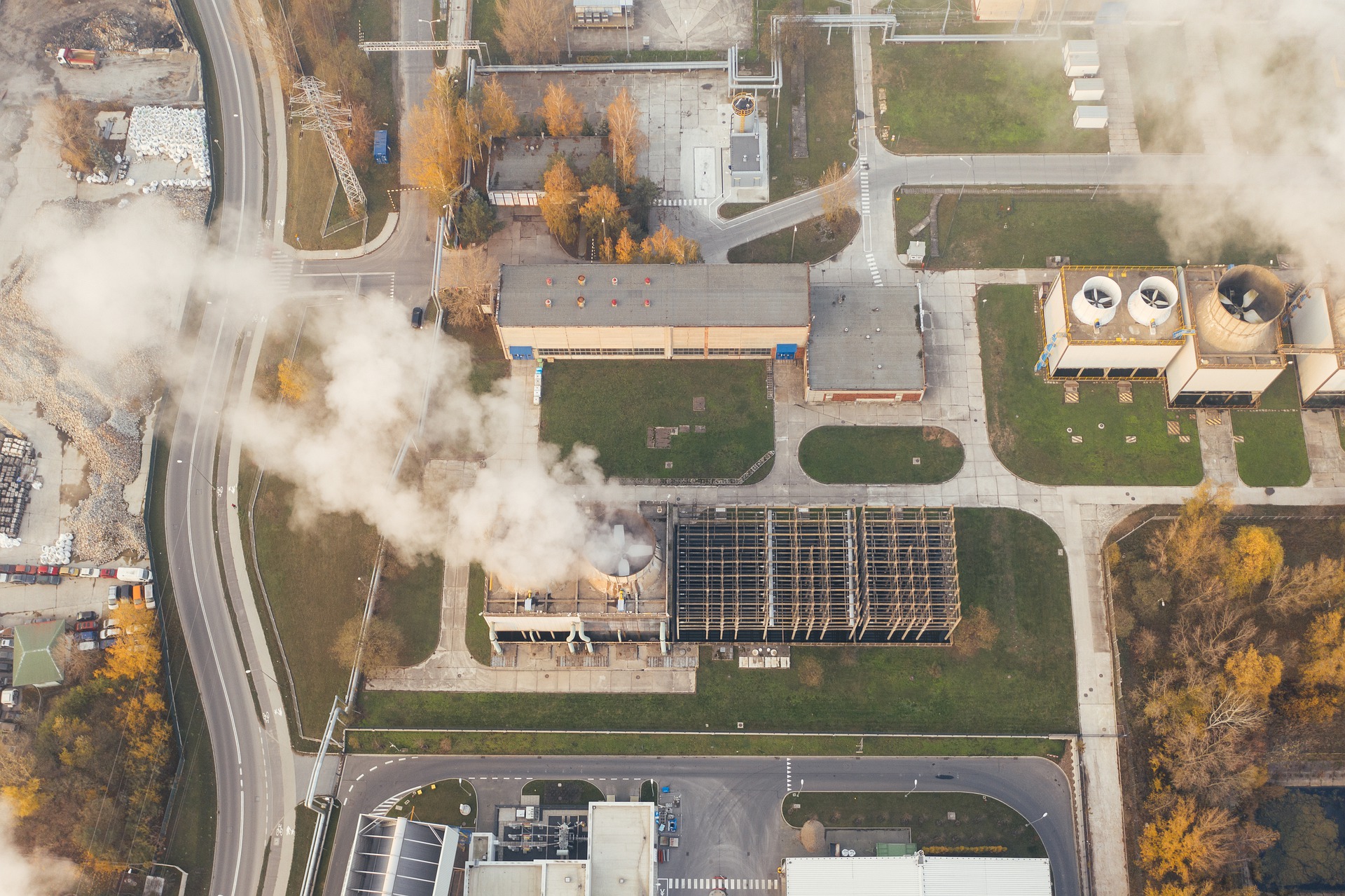Find out if your business needs an air permit in this quick read!
When it comes to environmental regulations, one of the most challenging things out there is what people most commonly refer to as air permits. Many types of operations need them, from small dry cleaners to squeaky clean data centers, elementary schools, apartment buildings, police stations, hospitals, and the obvious ones like factories and chemical plants. But what triggers the need for an air permit? Who, or better yet, what kind of business needs an air permit? If you're wondering this, you're not alone. It's one of the most common questions we get asked, from a variety of operations big and small across the United States.

Who actually needs an air permit?
This can be a tricky question to answer, as many states differ regarding what type of operation needs an air permit, and who does not. Then add in that regions, counties, and even local cities or municipalities can have additional air permitting considerations, you can quickly run into an extremely challenging and confusing situation unless you are an expert at navigation regulatory language.
Why is this? It has to do with what's referred to as "delegation". The Federal government sets high-level rules, laws, regulations, etc., and "delegates" the duties of enforcing those laws to various state agencies. So in this instance, the Federal government passed the Clean Air Act back in the 1960s and directed states to either use their rules (consider the Federal government's legislation a "baseline") or come up with something more stringent.
That's exactly what happened. Various state agencies, from state-level departments, to regional air boards, to even local jurisdictions such as counties or cities, have all, in some way, adopted air quality legislation. Some states and cities have stricter permitting standards because they are already exceeding air quality standards, while others want to keep their clean air the way it is! Air permits are how governments and regulatory agencies control and regulate air pollution from various kinds of facilities. While there are lots of different types of air permits, they all seek to achieve the same goal - to keep the air we breathe clean and healthy - something we can probably all get behind! Without air permits, our environment would not be as clean as it is today.
What is an air permit going to cost?
Great question! The unfortunate answer is... it depends! Some are cheap, some are extremely expensive. Read more in our article How much does an air permit cost?

So, who needs an air permit?
While there's no "one-size-fits-all" answer for who needs an air permit and who doesn't, there are some common trends across the United States for operations that will likely require an air permit. This again gets complicated because of the delegation I discussed above. For example, you could have two identical operations in two areas of a state which have different air permitting considerations. Industries, locations, processes, etc., will all have a direct impact on who needs an air permit, just like where a facility is located.
Regardless of who needs one, the question becomes if you do need one, what do you actually need? We have broken these down into two categories: Major source and Minor source operations. For a more detailed explanation of these terms, check out our article: What are air permits?>
For now, just know that Minor and Major sources are an easy way of designating whether a source is going to be a large or small emitter of air pollution. Those who fall under Minor source operations may need an air permit depending on the state or city they are in, the air quality standards present, and the degree that they release air pollution to the environment. Major source operations, on the other hand, will most likely need an air permit regardless of the state, city, air quality standards, or their releases.

Minor Source Operations Air Permitting Applicability
Minor source operations are considered to pollute the air less than major source operations. They are a "minor" source of air pollution! Depending on your location, regulations, facility, process, equipment, etc., you may or may not need an air permit as a minor source operation. Some of the most common minor source operations follow:
- Asphalt Plants
- Dry Cleaning Operations
- Concrete Plants
- Generators & Emergency Generators
- Quarry Operations (crushing/screening/stacking)
- Electroplating/Polishing Operations
- Gas Storage Tanks > 2000 gallons
- Degreasing Operations w/VOC solvents
- Combustion Equipment > 1 MMBTU/hr.
- Large Solid Material Storage Containers
- Wood Grinding Operations
- Grain Loading Operations
- Abrasive Blasting (sandblasting/shotblasting/etc.)
- Landfills
- Printing Operations
- Pharmaceutical Production
Please note that this list is not all-inclusive. Other types of facilities, operations, processes, pieces of equipment, etc., may trigger the need for an air permit. You should always either consult with your applicable regulatory agency or discuss your facility with an expert to learn more about air permit applicability.

Major Source Operations Air Permitting Considerations
Major source operations are considered to heavily pollute the air, and therefore will almost always need an air permit. Some of the most common major source operations follow:
- Metal Manufacturing & Processing
- Glass Manufacturing
- Chemical Production Plants
- Paper Mills
- Cement Plants
- Oil Refineries
Again, please note that this list is not all-inclusive!
How can I be sure that I need an Air Permit?
If your operation is listed under either of the above lists (especially the major source list) there’s a good chance you’ll need a permit. The only way to be sure, though, is to check your state/county/city air quality regulations to truly determine if an air permit is required. Again, regulations change depending on where you are located, so you may or may not actually need an air permit depending on where your site is situated.
If you're trying to figure out whether or not you need a permit and don’t want the hassle of scouring state or local regulations or calling around to regulatory agencies, it's best to reach out to a qualified expert for help.
Keep in mind that the above lists do not include every industry or operation that may fall under a minor/major source designation. And, even if you aren't included in one of the above categories, there are still some other instances where you might need an air permit.

Does my temporary equipment need an Air Permit?
Maybe. Temporary equipment in many states will have some unique permitting requirements. Some states may simply allow temporary equipment (such as mobile screening or stacking units) to operate for a short period of time without an air permit or may require a simpler and cheaper “General Permit” for your operations instead of a more complicated and expensive permit. Other states may allow some small units such as generators to operate for a few weeks at a time to qualify for a temporary permit exemption. It really depends on the state and the situation.
Does portable equipment need an Air Permit?
Probably. Portable equipment generally will still need an air permit in the same way it would if the unit were stationary. Additional provisions and compliance plans will be written into the permit in many cases, requiring facilities to send a notification to the regional office when the equipment is to be relocated, or even just to keep records of relocation.

What should I do if I need an Air Permit?
Well to start, don't panic! If you've determined that you do need an air permit, you'll need to start the application process. Some regulatory agencies provide an application online, while others require you to print and complete a paper copy. Likewise, some agencies charge an application fee, while others do not. Application procedures vary by city and state, so be sure to check with the regulatory agency located where you're planning to operate.
Make sure that your application is completely filled out and submitted correctly. After all, you don't want it to be rejected for a minor mistake, such as leaving a section blank. You may be asked for information about your operations, the amount of pollution that you emit, the sources of the emissions, your compliance history, past environmental violations, and more. It goes without saying: don't lie on your application! If you're found to have intentionally provided incorrect information, you could be subject to fines or even criminal prosecution.
The regulatory agency will usually send you an acknowledgment letter confirming they've received your application. Be sure to keep this letter on file with all copies of your application documentation.
The application and approval process can vary in time, again, depending on the agency you're dealing with. Some agencies will approve an application for an air permit quickly, while others could take weeks or months. Once you're approved and receive coverage under your permit, read it! Make sure you understand fully all of the conditions and limitations that are you will be held to.
Finally, be sure to keep your air permit with you at all times during operation. This way, you'll be able to easily present it to an inspector should they request to see it. And, you'll always have it on hand in case you need to refer back to it for clarification.

Need additional air permitting help?
If you’re trying to figure out whether or not you need an air permit, this might be a lot to take in. If you're overwhelmed by all this air permitting talk, you're not alone. RMA has been actively involved in helping companies with environmental regulations like air quality permits since our founding in 1992. Long story short, we know the ins and outs of the environmental concerns facilities deal with regarding air permits and other environmental issues. We help you get into compliance with applicable environmental laws and regulations, ensuring your business stays out of trouble and in compliance.
Our staff members have been on-site at thousands of operations across the country, so when we say we've seen it all and done it all, we mean it. We've provided help with air permits to everyone, from globe-spanning, multi-national organizations to small "mom & pop" shops. No matter your size, industry, or location, we'd love to learn how we can help with your air permitting needs.
If you're having any type of issue at your operation with your air permitting program, need to apply for an air permit, or anything else, and need the help of an environmental consulting firm with a proven track record, reach out. Even if we can't help, we’ll do our best to steer you in the right direction. Feel free to contact us at info@rmagreen.com, click here to contact us, or give us a call anytime at 888-RMA-0230 to learn how we can help your operation deal with environmental regulations and air permits.



















